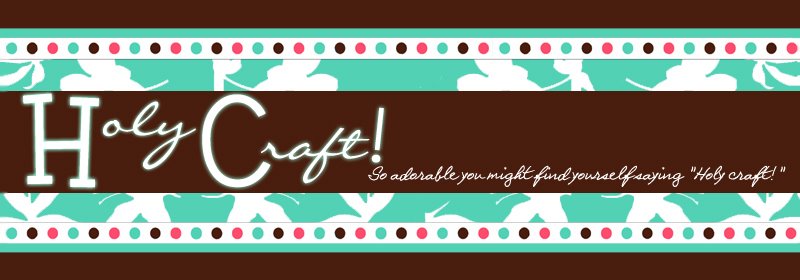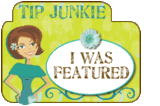As a "small business owner", I've recently been made aware of this crazy (in my opinion) new law about to be enacted that could make it illegal to sell anything handmade that is related to children. So...there goes any of my hair bows, baby blocks, bibs, etc. PLEASE help me fight this law by contacting your senator and/or congressman/woman and letting them know that this law--while well-intentioned is not at all well thought out and will put many small businesses out of business. Is this what our economy needs??
Here is some info (much better worded than anything I can come up with!) I came across on another blog, Rocks In My Dryer.The Scoop on CPSIA
Like many of you, I'm a big fan of supporting creative small business owners, such as those found on Etsy and elsewhere on the web. The "cottage industry" environment fostered by the web inspires me, especially as I see creative women (many of them moms) making brilliant, artistic items in their home, and giving me--the consumer--a chance to buy something special and handmade.
So it's been with increasing alarm that I've followed the story around CPSIA. (Never heard of it? Bear with me just a minute.) This is a law that goes into effect in only a few short weeks, and it has the potential to greatly inhibit the productivity of crafty small business owners that make products for children.
I do not own a business making children's items, so my knowledge on the subject has been fairly limited. But I wanted to understand it better--and to be able to tell you about it--so I decided to ask for some help. My real-life friend Heather is the owner of Blessed Nest, a small but growing company that makes organic nursing pillows. This law has thrust Heather into the position of reluctant activist, as she's had to discern what this law means for her company (newspaper columnist Susanne Tobias even interviewed Heather on the subject here).
Thankfully, Heather agreed to sit down and answer a few questions, and you may be surprised to learn just how far-reaching this new law is. Heather's answers to my questions are in italics, below:
What exactly is CPSIA?
CPSIA stands for Consumer Product Safety Improvement Act. The way it was summarized for the U.S. Senate vote was: “A bill to establish consumer product safety standards and other safety requirements for children's products and to reauthorize and modernize the Consumer Product Safety Commission.”
Terrific, it’s about time, read no further… right? Well, it’s sort of their jobs to read the whole thing and think about it before they “yea” or “nay”. See how your favorite Senator voted here and Congressman/woman here.
How will it affect Etsy shop owners and other small crafty businesses?
According to the actual scope and wording of this bill (H.R.4040), as of Feb. 10, 2009, all products made and/or marketed to children under the age of 12 will have to comply with mandatory lead and phthalates testing for each component of each product they sell or face felony charges and hefty fines. Tests have to be conducted by labs that have been approved by the Commission, and range in price from several hundred to several thousand dollars. (For one small business’s estimate based on actual quotes from approved labs, see Happy Panda’s blog). Even if you use the same materials for the 30 different things that you sell, every component of all 30 have to be individually tested, regardless of whether those materials have passed testing by other agencies or other manufacturers. For example, we use Harmony Art fabrics, which conform to the Global Organic Textile Standards (GOTS) . Even if we had them tested by the lower standards of the CPSIA for our pillows, a mom who sells hand-made slings out of the very same fabrics would have to have her products tested as well.
In a nutshell, if you knit booties (or sew burp cloths, or make bibs, or create hair bows) and sell them on Etsy (or at your church craft fair or to your neighbor down the street) you will be required to have each size and style of each item you sell tested, even if they are made from the same material. Let's say, for example, you knit booties and sell them. Even though yarn is not known to inherently contain lead or phthalates, and even if your yarn has been certified organic by GOTS standards, which exceed CPSIA standards by more than 300%, your yarn would have to be tested. And if you opt to have the testing done, next time you get the same yarn from the same manufacturer in a different dye lot, everything has to be re-tested.
There are some less expensive tests available through “unapproved” sources, but they will only be good until August, 2009. So, it either means that if you sell without certification you are breaking the law or that you better have a rich uncle.
Will any other businesses be affected? What about consignment stores and/or eBay?
The law applies to all products, even used items. This means that unless the stores (including eBay sellers and private parties) do the testing themselves, on Feb. 11 all of those products are to be treated as hazardous waste and destroyed. In a vague memo issued this week by the CPSA “resellers” may be excluded from certification, but these proposals also say that businesses owners will still face the same penalties if an item they sold ends up containing lead. It not only omits a specific definition of what a “reseller” is, it also fails to explain whether it applies to their entire inventory or just used items. So it exposes the store owner to the risk of either being shut down because of an item that may or may not have actually been purchased from them, but also to the nuts that could sue them if they claimed they were injured by the product. (Ouch, McDonald’s… I spilled my coffee!) It also is a very effective tool for competitors to use against businesses who they know can’t comply, a practice that has already been used by some of the big guys.
Something else to consider is that Canada is apparently watching to see what happens with this legislation, as they structure their own policies for safety standards. Many other countries could follow suit, making handmade children’s products a thing of the past, globally!
How will it affect consumers?
If the only products on the market are those made by companies who can afford to comply with the CPSIA rules (especially on such short notice), consumers will have very few options. Taking away handmade and even used items will create a market that is little more than mass-produced, mostly foreign-made children’s products. It also sets a precedent which allows one government agency to determine what is in the best interest of “public safety”, without having to take other factors into account.
One other big issue is that the jury is still out whether books, including text books and library books will be exempt. If the law isn’t changed, libraries will have two options: “Either they take all the children’s books off the shelves, or they ban children from the library.” (according to Emily Sheketoff, associate executive director of the American Library Association.
To play devil’s advocate for a minute, I suspect that advocates of this law support it in the interest of keeping kids safe. What’s your response to that?
The irony is that most of the people who will be hurt by this are those of us who have been trying to get the government to pass safety laws all along. We all want our kids to be safe, and in fact many of our businesses were started as a way of being proactive in providing safe alternatives to the mass-produced, unregulated products on the market now. I doubt that many people want this law to be vetoed altogether, just for it to be reasonable. We want it to focus on areas where it will do the most good without forcing everyone else to break the law or live in fear of being shut down and hauled off to prison. There are many intelligent recommendations that have been made that would not only protect children but also would allow small businesses to operate and let parents make informed choices for what they buy.
Is it inevitable? Can something be changed? If so, what?
Well, not to sound too dramatic… but I believe that inevitability is the enemy of liberty. Without going into too much detail here (feel free to read my soapbox letter here), I think that this is much deeper than whether I can call my pillows “nursing pillows” or not. Fortunately, this is still America, and our voices do matter. This bill was pushed through under the radar at an unusually fast pace, but our representatives are still responsible for representing us. You can join the efforts of the Handmade Toy Alliance here, sign a petition here, and vote to bring this issue before the President-Elect on Inauguration Day here.
Once you get into this it can become very emotional, confusing and overwhelming, especially if you are a small business trying to make ends meet (insert raised hand here). We have made a page on our blog where we are trying to stream-line the most up-to-date information, links, articles and support that we find. We’re also looking into the technology to put a hug on it, but that could be years off and would be regulated anyway. In the meantime, at least we know we’re all in it together!
I expect that many of you are very knowledgeable about this issue as well. If you know of additional resources, please leave them in the comments section below. In addition to contacting your congressional representatives, you might consider alerting local, state or even national media to this story that will affect so many hard-working women.







2 comments:
Thanks for publicizing this! May I also suggest visiting the War Room for up to the minute updates and focused activism? http://bit.ly/3SFN. There's also the automated mailer to email legislators in one fell swoop. http://tinyurl.com/5hloos. Lastly, we are asking people to fill out the Economic Impact Survey http://bit.ly/Cdwv. The latter link also includes every CPSIA entry published on Fashion-Incubator.com
Thank you for spreading the word to your readers.
Post a Comment